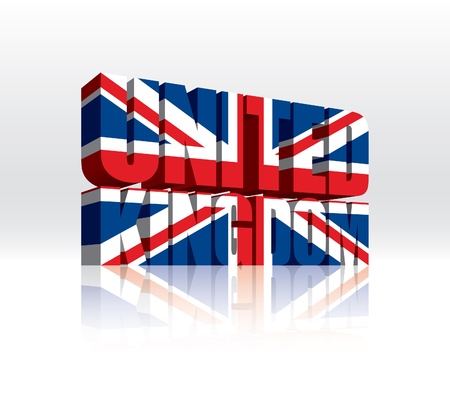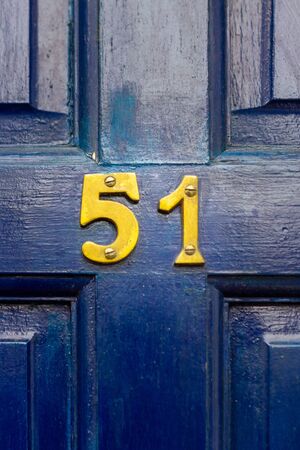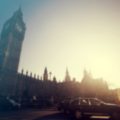Introduction to Numerology in the UK
Numerology, the ancient study of the mystical significance of numbers, has experienced a notable resurgence within the United Kingdom in recent years. While its origins can be traced to various civilisations across the globe, numerology’s principles have found fertile ground in British society, where curiosity about spiritual and metaphysical subjects is steadily growing. This renewed interest is not merely a passing trend but reflects a deeper desire among Britons to seek personal meaning and guidance amidst an ever-changing social landscape. As more individuals and communities across the UK explore holistic wellbeing and alternative spirituality, numerology stands out for its unique blend of tradition, symbolism, and introspective insight. By examining both historical context and contemporary relevance, it becomes clear that numerology is carving out a distinct space in British culture—inviting people from all walks of life to engage with its age-old wisdom.
2. Historical Roots and Local Acceptance
Numerology, as a system of mystical number interpretation, possesses ancient roots that stretch across civilisations. To understand its journey to the United Kingdom, it is essential to examine the two most influential systems—Chaldean and Pythagorean numerology—and trace how each found resonance within the UK’s evolving spiritual landscape.
Origins of Chaldean and Pythagorean Numerology
| System | Origin | Core Principles |
|---|---|---|
| Chaldean | Ancient Babylonia (Mesopotamia) | Focuses on vibrations of numbers 1-8, with 9 regarded as sacred; assigns values based on sound and name spelling |
| Pythagorean | Ancient Greece (6th century BCE) | Numbers 1-9 used in cycles; assigns values based on the Latin alphabet; emphasises mathematical harmony and universal patterns |
The Arrival of Numerology in the UK
The transmission of numerological thought into the British Isles can be attributed to several historical factors. During the Roman occupation, Greek philosophical texts became accessible, including works inspired by Pythagoras. Later, through mediaeval translations and esoteric circles, both systems were further disseminated among scholars and mystics. The Victorian era saw an explosion of interest in the occult, spiritualism, and alternative philosophies, providing fertile ground for numerology’s integration into British culture.
The UKs Spiritual Landscape: A Receptive Ground
The United Kingdom has long harboured a fascination for the mystical, from Druidic traditions to Christian mysticism and later Theosophy. The practical yet inquisitive British mindset proved open to exploring foreign spiritual systems while adapting them to local customs. Numerology was not merely adopted but subtly woven into practices such as personal naming conventions, architectural planning, and even literary analysis.
Cultural Adaptation and Enduring Appeal
The Chaldean system appealed to those interested in ancient wisdom and esoteric knowledge, while the Pythagorean approach resonated with proponents of rational order and universal laws. Both systems found their advocates among British intellectuals, authors, and members of secret societies. Over time, numerology became a fixture in popular culture—appearing in newspapers’ horoscopes, self-help literature, and holistic wellness practices.

3. Distinctions Between Chaldean and Pythagorean Systems
When considering numerology’s increasing popularity in the United Kingdom, it is vital to appreciate the fundamental distinctions between the Chaldean and Pythagorean systems. Both have found their unique place within British esoteric circles, yet they differ significantly in methodology and interpretive approach.
Methodological Frameworks
Chaldean Numerology traces its roots to ancient Babylon and assigns values based on phonetic vibrations rather than mere alphabetical order. In this system, the numbers 1–8 are used (with 9 considered sacred and often omitted), and each letter receives a value according to its sound. This nuanced mapping is believed by British practitioners to yield more personalised readings that resonate with the individual’s inherent character.
Pythagorean Numerology, meanwhile, is grounded in Greek philosophical traditions, assigning numerical values sequentially from 1 to 9 across the alphabet. This method is perceived as more systematic and accessible, allowing for straightforward calculations—qualities that appeal to the logical sensibilities valued within UK academic and spiritual communities alike.
Interpretation Through a British Lens
The way these systems are interpreted in the UK also reflects broader cultural attitudes. Chaldean interpretations tend to emphasise intuition, mysticism, and subtle influences—a perspective that aligns with Britain’s historic fascination with secret societies and occult traditions. Pythagorean readings, by contrast, are often framed around personal development, progress, and pragmatism, echoing British values of self-improvement and rational enquiry.
Cultural Preferences in Practice
In contemporary British numerology circles, some prefer Chaldean numerology for matters of fate or hidden personality traits—areas where ambiguity and depth are prized. Others gravitate towards Pythagorean analysis when seeking clarity on career choices or interpersonal relationships, favouring its structured approach.
The Bottom Line
The choice between Chaldean and Pythagorean systems among UK practitioners is rarely arbitrary; it tends to mirror broader social preferences for either intuitive wisdom or logical progression. As numerology gains traction in British popular culture, understanding these distinctions helps demystify why certain approaches resonate more strongly within particular segments of society.
4. The British Experience: Numerology in Everyday Life
Within the United Kingdom, numerology has found its way into various facets of daily existence, blending seamlessly with the nation’s unique traditions and cultural landscape. Both Chaldean and Pythagorean systems have subtly influenced personal choices, business strategies, and even elements of popular culture.
Personal Decisions Influenced by Numerology
Many Britons consult numerology when making significant life decisions. For instance, it is not uncommon for individuals to choose wedding dates that align with auspicious numbers or to select house numbers believed to bring good fortune. While some may regard these practices as whimsical, others approach them with sincere belief. In recent years, online forums and social media groups dedicated to numerological advice have seen a rise in UK-based participants sharing success stories and seeking guidance.
Examples of Numerology in Personal Life
| Scenario | Numerological Consideration | Cultural Context |
|---|---|---|
| Choosing a baby’s name | Balancing numerological values for luck and personality traits | Popular among parents who value tradition and symbolism |
| Selecting a property | Avoiding “unlucky” house numbers (e.g., 13) | Reflected in estate agent anecdotes across London and Manchester |
| Picking wedding dates | Aligning ceremony dates with “lucky” numbers (such as 7 or 8) | Increasingly common in multicultural communities |
Numerology and Local Businesses
The entrepreneurial spirit in the UK often intersects with numerological thinking. Some small businesses, particularly those in cosmopolitan cities like London and Birmingham, consult numerologists before launching new ventures or naming their companies. Restaurants may design menus with pricing that avoids traditionally “unlucky” numbers, while boutique shops might open on specific dates deemed favourable.
Anecdotes from British Businesses
- A boutique tea shop in Brighton changed its opening day after a numerologist’s recommendation—reportedly boosting foot traffic during its first week.
- An independent fashion brand based in Edinburgh adjusted its brand name spelling to achieve a numerological total corresponding to prosperity.
- A tech start-up in Bristol credited numerology for picking a product launch date that coincided with positive client feedback and media attention.
Numerology in British Popular Culture
Narratives involving lucky numbers frequently appear in UK media, from television quiz shows referencing “lucky sevens” to celebrities sharing personal beliefs about significant digits. Football fans debate shirt numbers’ impact on player performance, while lottery advertisements often highlight the “magic” of certain combinations. This subtle embedding of numerological themes illustrates how deeply these systems are woven into the fabric of everyday British life—even if sometimes playfully or subconsciously so.
5. Contemporary Trends and Community Perspectives
In recent years, numerology has experienced a marked resurgence within the United Kingdom, fuelled by both digital connectivity and a renewed interest in holistic well-being. The Chaldean and Pythagorean systems, once the preserve of esoteric circles, are now actively discussed in diverse public forums ranging from Instagram accounts to local community workshops. This section systematically explores the current trends, influential figures, and the vibrant communities shaping numerology’s contemporary British landscape.
Digital Platforms and Accessibility
The proliferation of social media and dedicated online forums has been pivotal in democratising numerology. Influencers based in London, Manchester, and Edinburgh frequently share insights into the Chaldean and Pythagorean methods via YouTube tutorials, podcast episodes, and TikTok explainers using distinctly British references and idioms. These digital spaces have enabled enthusiasts to access resources, engage in lively debates, and even book virtual readings from the comfort of their own homes.
Offline Engagements: Workshops and Meet-ups
Beyond the screen, offline activities have gained traction across major UK cities. Boutique wellness centres in Brighton or Bristol regularly host numerology evenings where participants explore their personal numbers through Chaldean or Pythagorean frameworks. Local libraries and community halls also provide neutral spaces for numerology clubs to meet and exchange interpretations rooted in British cultural contexts—such as the significance of house numbers or birthdates aligned with historic national events.
Influencers Shaping Numerological Discourse
A new generation of numerologists is emerging as thought leaders in Britain. Figures such as Samantha Jayne and David Wells blend traditional number symbolism with distinctly British sensibilities—whether referencing Shakespearean literature or iconic UK landmarks during their readings. Their work often appears on BBC Radio segments or lifestyle columns in publications like The Guardian, further embedding numerology within mainstream discourse.
Integration with Broader Wellness Movements
The integration of numerology into the UK’s broader wellness movement is another notable trend. Many Britons now regard numerology consultations as complementary to mindfulness practices or astrology sessions. Retreat organisers in Scotland’s Highlands or Cornwall’s coasts offer immersive experiences that combine yoga, meditation, and number analysis—reflecting a uniquely British approach to self-exploration and community building.
Community Perspectives: Skepticism and Acceptance
While acceptance grows, British pragmatism ensures that healthy scepticism remains part of community discussions. Forums such as Mumsnet host lively threads debating the scientific merits of numerology versus its psychological benefits as a tool for reflection. This balance between open-minded exploration and critical inquiry characterises the evolving perspective on numerology across the UK today.
6. Scepticism, Regulation, and Mainstream Perception
Despite the growing popularity of numerology in certain circles within the United Kingdom, public opinion remains markedly sceptical. The British cultural landscape, shaped by a long tradition of rationalism and scientific inquiry, often views numerology as pseudoscience or mere entertainment rather than a credible means of insight. This scepticism is further amplified by mainstream media portrayal, where numerology is frequently relegated to lifestyle segments or treated with gentle humour, reinforcing its status outside the realm of serious discourse.
From a regulatory perspective, numerological services in the UK are subject to general consumer protection laws rather than specific legislation. Practitioners must ensure that their advertising does not mislead clients or make unverifiable claims, aligning with the standards set forth by the Advertising Standards Authority (ASA). However, there is no formal accreditation required to practise numerology, which some critics argue leaves room for exploitation and unsubstantiated promises.
Legal considerations aside, mainstream British society tends to approach numerology with a healthy dose of cynicism. The broader public often regards Chaldean and Pythagorean systems as curiosities rather than legitimate tools for self-understanding or decision-making. While adherents may find personal meaning in numerical patterns and cosmic correspondences, the dominant narrative remains one of caution. Debates occasionally surface regarding ethical boundaries—particularly around offering predictive readings or life guidance—but these discussions rarely extend beyond niche forums or specialist publications.
In summary, while numerology’s influence can be observed among enthusiasts and spiritual communities in the UK, it continues to face significant barriers to mainstream acceptance. Widespread scepticism, limited regulation, and cautious media coverage all contribute to its peripheral role in British culture. Nevertheless, the ongoing interest in alternative belief systems suggests that numerology will persist as a topic of discussion—albeit largely on the fringes of public consciousness.
7. The Future of Numerology in the United Kingdom
Looking ahead, the trajectory of numerology within the United Kingdom appears poised for significant transformation, shaped by several interwoven factors. As digital technology continues to permeate daily life, access to numerological resources—be it Chaldean, Pythagorean, or other systems—has never been easier. Online calculators, virtual consultations, and social media communities dedicated to numerological analysis are rapidly demystifying these ancient practices for a new generation.
Technological Integration and Accessibility
The UK’s robust technological infrastructure is enabling both practitioners and enthusiasts to share knowledge more widely and interactively. Mobile applications and AI-driven platforms now offer personalised readings, educational content, and community forums at users’ fingertips. This accessibility lowers barriers to entry and allows even those previously sceptical to engage with numerology in a low-pressure environment.
Generational Shifts and Evolving Attitudes
Younger generations in Britain are displaying increased curiosity towards alternative spiritualities, including numerology. Unlike previous eras marked by rigid empiricism or religious orthodoxy, contemporary British society tends to encourage exploration of diverse belief systems. This shift is reflected in growing participation in wellness festivals, holistic workshops, and online groups centred around personal meaning-making.
Cultural Openness and Hybridisation
The UK’s multicultural landscape provides fertile ground for cross-pollination between different numerological traditions. British interpretations of Chaldean and Pythagorean systems often blend with local folklore or other esoteric practices such as astrology and tarot. This hybridisation not only enriches the practice but also ensures its relevance in an ever-evolving cultural context.
Speculating on Mainstream Acceptance
While numerology is unlikely to achieve universal acceptance within mainstream science or academia, its popularity as a tool for self-reflection and decision-making seems set to rise. As digital literacy improves and societal attitudes grow more inclusive, numerology may find itself woven into broader conversations about mental health, wellbeing, and identity in Britain. Ultimately, whether as a personal guide or a cultural curiosity, numerology’s future in the UK will be shaped by its ability to adapt to changing times while retaining its symbolic allure.


